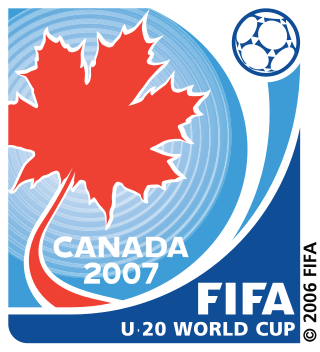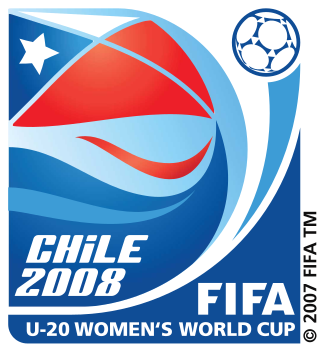This article needs additional citations for verification .(May 2022) |
The two teams in this group played against each other on a home-and-away basis. The winner qualified for the seventh FIFA World Cup held in Chile.
This article needs additional citations for verification .(May 2022) |
The two teams in this group played against each other on a home-and-away basis. The winner qualified for the seventh FIFA World Cup held in Chile.
| Pos | Team | Pld | W | D | L | GF | GA | GD | Pts | Qualification | | | |
|---|---|---|---|---|---|---|---|---|---|---|---|---|---|
| 1 | 2 | 1 | 1 | 0 | 3 | 2 | +1 | 3 | Advanced to the UEFA–AFC play-off | — | 2–1 | ||
| 2 | 2 | 0 | 1 | 1 | 2 | 3 | −1 | 1 | 1–1 | — |
| Yugoslavia | 2–1 | |
|---|---|---|
| Kaloperović Kostić | Report | Brychczy |
| Poland | 1–1 | |
|---|---|---|
| Szmidt | Report | Galić |

The 1962 FIFA World Cup was the seventh edition of the FIFA World Cup, the quadrennial international football championship for senior men's national teams. It was held from 30 May to 17 June 1962 in Chile. The qualification rounds took place between August 1960 and December 1961, with 56 teams entering from six confederations, and fourteen qualifying for the finals tournament alongside Chile, the hosts, and Brazil, the defending champions.

The 2007 FIFA U-20 World Cup was the 16th edition of the FIFA U-20 World Cup, hosted by Canada from 30 June to 22 July 2007. Argentina defeated the Czech Republic in the title game by the score of 2–1, thus managing a back-to-back world title, its fifth in the past seven editions, and sixth overall. Argentine player Sergio Agüero was given the FIFA U-20 Golden Shoe and the FIFA U-20 Golden Ball, while Japan earned the FIFA Fair Play Award.
The South American zone of 2010 FIFA World Cup qualification saw ten teams competing for places in the finals in South Africa. The format is identical to that used for the previous three World Cup qualification tournaments held by CONMEBOL. Matches were scheduled so that there were always two games within a week, which was aimed at minimizing player travel time, particularly for players who were based in Europe.

The 2008 FIFA U-20 Women's World Cup was the 4th edition of the tournament. It was held in Chile between 19 November and 7 December 2008. Sixteen teams, comprising representatives from all six confederations, took part in the final competition, in which Chile had a guaranteed place as the host nation.
The three teams in this group played against each other on a home-and-away basis. France and Bulgaria finished level on points and advanced to a play-off on neutral ground to decide who would qualify. The winner (Bulgaria) qualified for the 1962 FIFA World Cup held in Chile.
The three teams in this group played against each other on a home-and-away basis. West Germany won the group over Northern Ireland and Greece and qualified for the seventh FIFA World Cup held in Chile.
The three teams in this group played against each other on a home-and-away basis. The group winner qualified for the seventh FIFA World Cup held in Chile.
The five teams in this group played in a knockout stage on a home-and-away basis. The winner (Italy) qualified for the seventh FIFA World Cup held in Chile.
The three teams in this group played against each other on a home-and-away basis. Czechoslovakia and Scotland finished level on points and advanced to a play-off on neutral ground to decide who would qualify. The winner (Czechoslovakia) qualified for the seventh FIFA World Cup held in Chile.
The three teams in this group played against each other on a home-and-away basis. The group winner qualified for the seventh FIFA World Cup held in Chile.
The three teams in this group played against each other on a home-and-away basis. Sweden and Switzerland finished level on points and advanced to a play-off on neutral ground to decide who would qualify. The winner (Switzerland) qualified for the seventh FIFA World Cup held in Chile.

The 2013 FIFA Beach Soccer World Cup was the seventh edition of the FIFA Beach Soccer World Cup. Overall, this was the 17th edition of a world cup in beach soccer since the establishment of the Beach Soccer World Championships which ran from 1995–2004 but was not governed by FIFA. It took place from 18–28 September 2013 at Tahua To'ata Stadium in Papeete, Tahiti, French Polynesia and was the fourth tournament to have taken place outside Brazil. This was the second tournament to take place since the establishment of a longer two-year cycle of tournaments. This was also the first FIFA tournament held in a Pacific country other than New Zealand, and the first senior FIFA tournament took place in the region.
The South American section of the 1962 FIFA World Cup qualification saw 7 teams competing 3 berths in the finals.

The FIFA World Cup, sometimes called the Football World Cup, but usually referred to simply as the World Cup, is an international association football competition contested by the men's national teams of the members of Fédération Internationale de Football Association (FIFA), the sport's global governing body. The championship has been awarded every four years since the first tournament in 1930, except in 1942 and 1946 due to World War II.
Group 5 was one of six groups of national teams competing in the group stage of the 1982 FIFA World Cup. Play began on 16 June and ended on 25 June 1982. The group consisted of four teams: Seeded team and host nation Spain, World Cup debutants Honduras, Yugoslavia and Northern Ireland.
For the 1962 FIFA World Cup qualification, there were three inter-confederation play-offs to determine the final three qualification spots to the 1962 FIFA World Cup. The matches were played between 8 October – 26 November 1961.
The 1962 FIFA World Cup UEFA–AFC qualification play-off was a two-legged home-and-away tie between the winners of UEFA Group 10, Yugoslavia, and the winners of the AFC final round, South Korea. The matches were played on 8 October and 26 November 1961 in Belgrade and Seoul, respectively.
The three teams in this group played against each other on a home-and-away basis. The group winner qualified for the seventh FIFA World Cup held in Chile.
The two teams in this group played against each other on a home-and-away basis. The winner qualified for the seventh FIFA World Cup held in Chile.
The North, Central American and Caribbean section of the 1962 FIFA World Cup qualification acted as qualifiers for the 1962 FIFA World Cup in Chile, for national teams which are members of the CCCF and NAFC. Seven teams participated in the tournament to compete for one place in the inter-confederation play-offs against a CONMEBOL team.